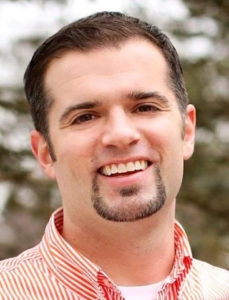 The battle in the U.S. Senate over the confirmation of Brett Kavanaugh is over, and most of the pundits have had their say. But Christianity has a Kavanaugh problem that didn’t end with the Senate’s 50-48 vote.
The battle in the U.S. Senate over the confirmation of Brett Kavanaugh is over, and most of the pundits have had their say. But Christianity has a Kavanaugh problem that didn’t end with the Senate’s 50-48 vote.
Soon after the new Supreme Court associate justice was ceremonially sworn in at the White House, with much political fanfare, Robert Jeffress, senior pastor of the First Baptist Church of Dallas, Texas, declared on Fox News, “It was electric in the room…. I would say the oversensing feeling in the East Room was that good had triumphed over evil.” And with that statement, Christianity and the message of Jesus just fell a few more notches in the eyes of the American public.
For a megachurch pastor, who for millions of Evangelicals represents their religious and political thinking, to go on television and declare that Kavanagh’s ascent to the Supreme Court is a defeat of evil not only smears the story of millions of women and men who have been sexually abused but makes Christianity about a power grab instead of the sacrificial way of Jesus. The Christian message of Jesus’ triumph over sin and death is not a story of political victory but a spiritual victory. Surely, Jesus did not come on earth so that the stories of the oppressed are called “evil.”
The testimony of Christine Blasey Ford was on display for the world. She claimed that Kavanagh sexually assaulted her during a drinking party in high school. Ford said, “Brett groped me and tried to take off my clothes. He had a hard time because he was so drunk, and because I was wearing a one-piece bathing suit under my clothes. I believed he was going to rape me.” She disclosed her therapist’s notes, her history of trauma, and a polygraph test which reportedly indicated she was telling the truth about her assault. Federal officials are routinely polygraphed for national security clearance access to extremely sensitive information about our nation and other nations. How can we utilize such high thresholds of accountability and truth for federal officials and discredit an assault victim’s attempts to prove her story?
Surely, Jesus did not come on earth so that the stories of the oppressed are called “evil.”
In turn, Kavanagh’s testimony was combative, angry, defensive, disrespectful and deflective when asked about his history of drinking, the account of his teenage years and the alleged assault. He even claimed it was legal for him to drink in Maryland while in high school. A simple Google search of news articles from the early 1980s reveals this was not the case. A brief investigation was completed by the FBI but it did not include the meaningful testimony of witnesses not present at the Senate hearings.
Is this really the evil that was overcome? A woman with nothing to gain and everything to lose comes forward with her account of an alleged sexual assault and she is demonized. Predictively, proponents of Kavanagh painted the attempts to bring allegations to light as a political stunt by Democrats. Of course, they never called Ford a liar, but that was the subtext. We live in a country in which one out of four women has been sexually abused. That means that our daughters, sisters, aunts, grandmothers, friends, and co-workers have lived this awful reality. We live in a world in which a woman was willing to go on an international stage and tell her story of sexual abuse and people looked the other way.
If we truly want to speak about good overcoming evil, as Jeffress spoke about, then we need to understand Christianity’s message of how Jesus served and elevated the poor, the oppressed, the exiled and the abused. The evils of abuse and power are evils that we Christians are called to end. As Christians, we must advocate the common good into our society. That is what Jesus did. He sought to change the power dynamic by seeking the least, last and lost and welcoming them to God’s table.
So, we are left with a Kavanaugh problem. The confirmation process revealed to the world that powerful Evangelicals would prefer to pick and choose among the commands of Jesus. The true evils of our world are abuse, corruption, suffering, killing, injustice and oppression. We as Christians must make our faith message not about political power plays but about overcoming evil with good found in the way of Christ. We do a disservice to God and to the credibility of our Christian faith by putting political gains first and Jesus’ kingdom second.
